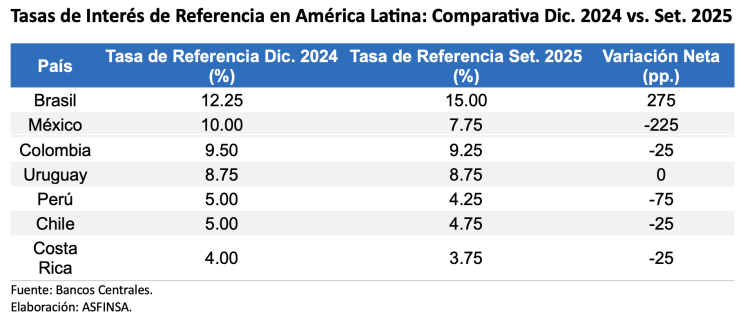Opposition to European integration has haunted the UK since its integration in the EEC in 1973. This continued the following decades, even as the EEC (European Economic Community) turned into the European Union. The debates evolved around the economic and financial situation. A first referendum on membership to the EU was held in 1975, a second one on the same subject will be held in 23rd June2016.

The Conservative party, which holds the majority in parliament following the 2015, elections is torn between those wishing to leave the EU and those preferring that Britain stays member.
Ahead of the referendum David Cameron secured an agreement with other European Union leaders to change the terms of Britain’s membership. He says the deal, which will take effect immediately if the UK votes to remain in the EU, gives Britain «special» status within the 28 nation club, and will help sort out some of the things British people say they don’t like about the EU, such as high levels of immigration and giving up the ability to run our own affairs.
Among the leading members of the party, the Prime Minister and his finance minister, George Osborne, who led the negotiations in Brussels, advocate staying in the EU. In contrast, the Mayor of London, Boris Johnson; Michael Gove, Secretary of State for Justice and Sajid Javid, Secretary of State for Business, the Innovation and Skills, have adopted eurosceptic positions.
The Labour Party is in favour of staying in the European Union. Although Jeremy Corbyns, Labour leader, voted against the accession of the United Kingdom to the European Union in 1975, he now states that the Union has protected «workers, consumers and the environment» and brought jobs for them.
Lobbies like “Britain Stronger in Europe”,” European Movement-UK”, ” Business For New Europe” and “British Influence”, created to promote the role of the United Kingdom in the EU, supported and financed by the business, finance and trade sectors, fear important economic and financial set-backs if the UK Is not member.
The UKIP (United Kingdom Independence Party), Eurosceptic, is openly in favor of leaving the EU.
Possible effects in the event of a Brexit
1) Exodus of European nationals
The 3 million European citizens living in the UK are getting worried. Leaving the EU would, in fact, mean establishing the obligation of visas and work permits, with an increase of administrative procedures.
There is no doubt that many would return to the European continent.
2) Financial effects
Capital would go. Large US banks are already analyzing and taking measures to relocate headquarters. Morgan Stanley, Goldman Sachs, Citigroup, for instance, had found in Britain an ideal ground for tax advantages and access to the European markets. They are now studying the possibility of transferring their activities to Paris or Frankfurt.
3) Social benefits on foreign workers
David Cameron contemplates, among other measures, limiting for the first four years social benefits for workers from other EU countries working in Britain. Over 700,000 Polish expatriates would be the first affected. Warsaw is legitimately worried about the fate of the Polish countrymen and suggested to London that this measure should only be applied to new arrivals.
4) «Europe à la carte»
The risk of ripple effects of Britain’s renegotiations is certain, affecting not only Poland but also other European nations. The EU has signed withdrawals options on certain matters with Denmark, Ireland, Poland and the United Kingdom. These special arrangements are plentiful.
5) Costs Brexit
The Confederation of British Industry (CBI), which represents 240,000 companies, has already positioned itself in recent weeks to remain within the Union, the interest for the UK amounting to 4 or 5 points of GDP. According to studies by the German foundation Bertelsmann Stiftung losses could amount to 14% of GDP, that is to say 3% of GDP/capita by 2030
6) Massive decline in foreign trade, return of customs barriers:
The accession of the United Kingdom in the European Community in 1973 gave access to the European market : free movement of goods and people, the end of trade barriers due to the customs union. Since 1973, the United Kingdom’s trade with member countries has increased by 55%.
Leaving the EU could cost the UK about 56 billion pounds (78 billion euros) a year for 10 years. With the return of customs duties, medical drugs would increase by 4.5%, the automobile sector by 10% while the tobacco and food would explode by 20%.
According to the World Trade Organization (WTO), the United Kingdom ranks eighth in the world for exports of goods and sixth in terms of imports. Since 1945, the EU trade influence in the world has been constant, whilst the United Kingdom has gone from first place as a trading power to the third, its share in European trade dropped by nearly nine points. The EU is the largest trading partner of the United Kingdom who had to forge new trade links after the emancipation of the colonies. All these advantages would be lost when leaving EU.

7) Migration
An EU exit would allow the UK to control its migratory flow, argues the Eurosceptics. Indeed, the majority of Britons consider that immigration is a major problem for the country.
8) Release of EU regulatory requirements
In case of a Brexit, the UK would then be free of the regulatory constraints imposed by the EU, which always causes annoyance in the House of Commons.
9) Annual contribution to the budget
In case of departing from the EU, Britain’s annual contribution of EUR 13.8 billion to the EU budget would not have to be paid.
10) Effects on Scotland
During the debates on the referendum on Scotland’s independence, British advocates against independence affirmed that once independent Scotland would be excluded from the European Union and would have to undergo a long process of negotiation for reinstatement. The SNP (Scottish Nationalist Party) believes therefore that a withdrawal of the UK from the European Union would justify holding of a new referendum with a view for Scots to stay or return to the EU which in turn would affect Scotland being part of the UK.
11) Future relations with the EU after a possible Brexit
The United Kingdom’s relations with the EU could take several forms: association or non-membership in the European Economic Area, recovering its membership of EFTA (European Free Trade Association), sectorial agreements could be signed with the EU .








